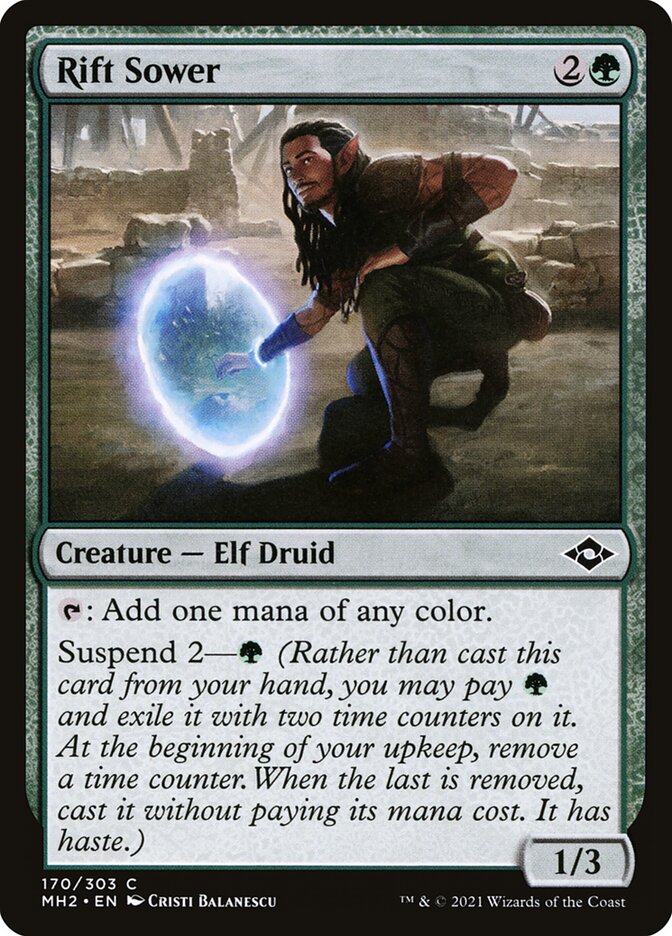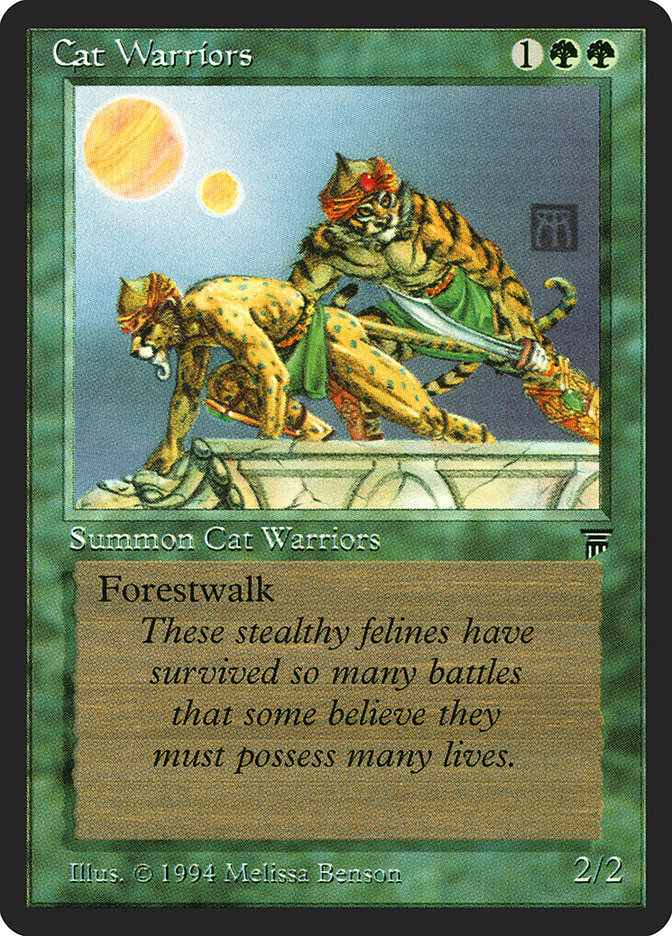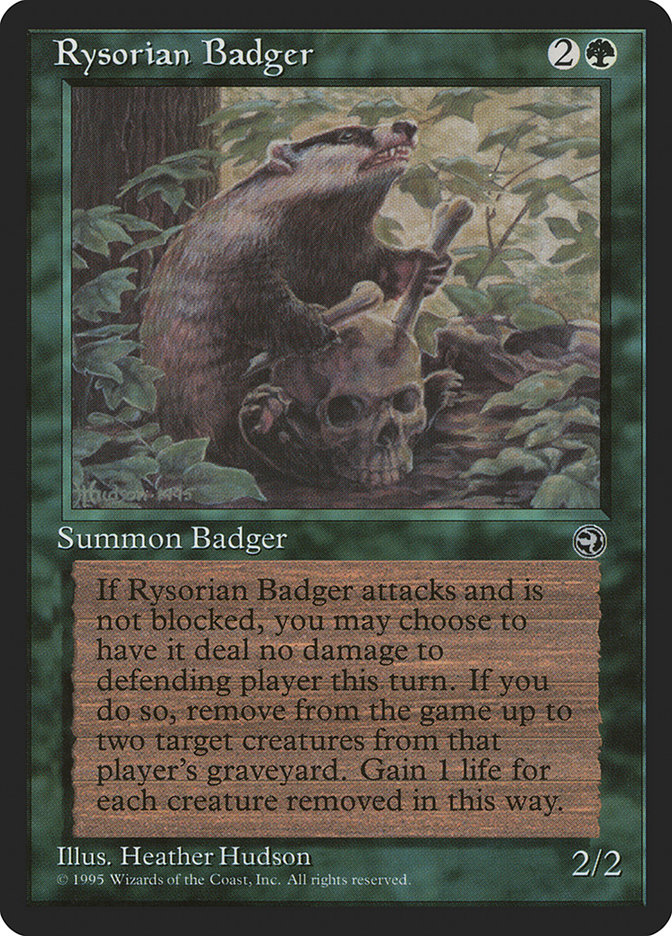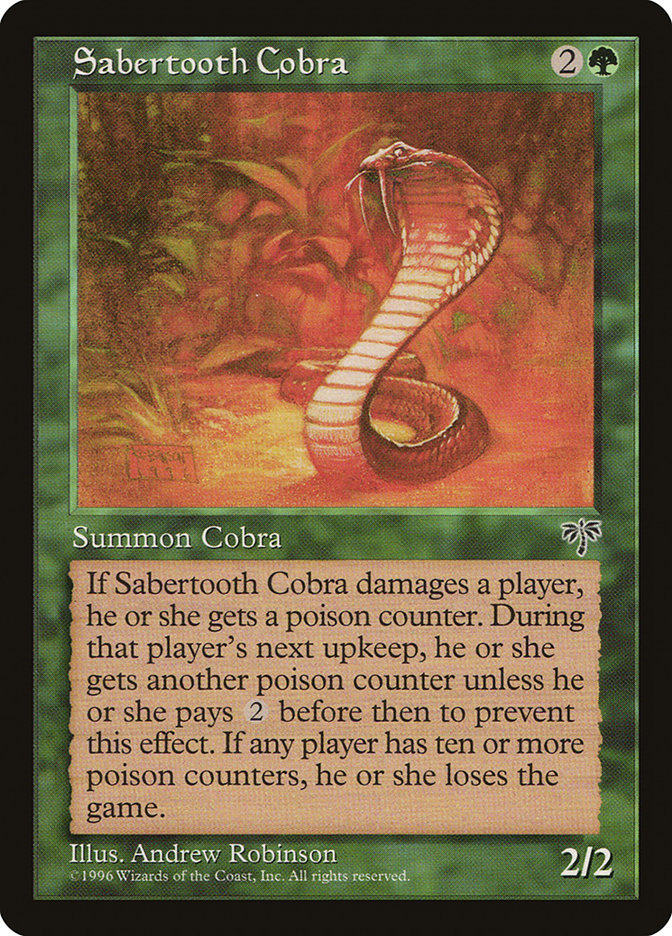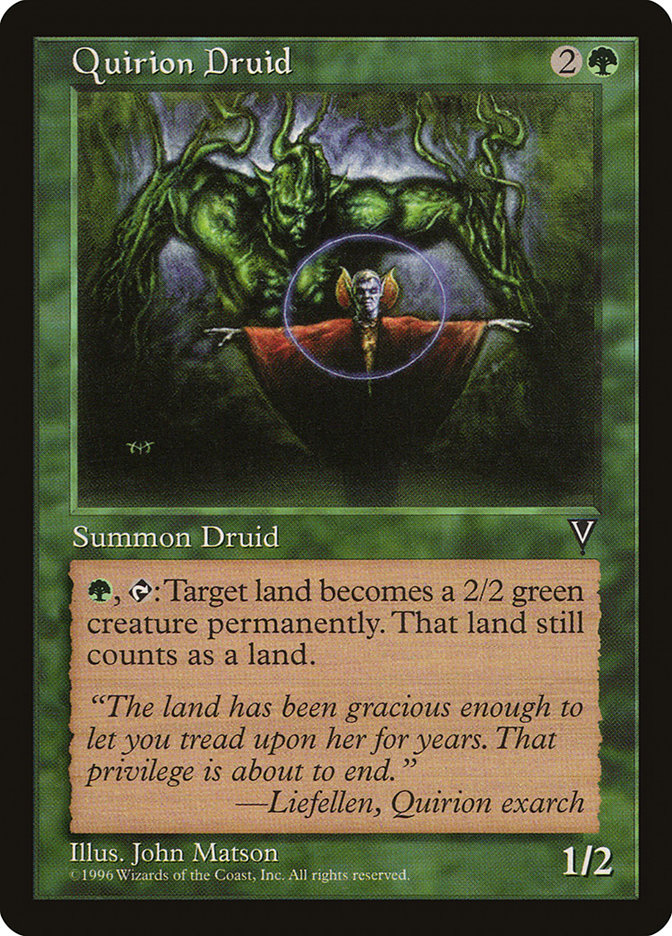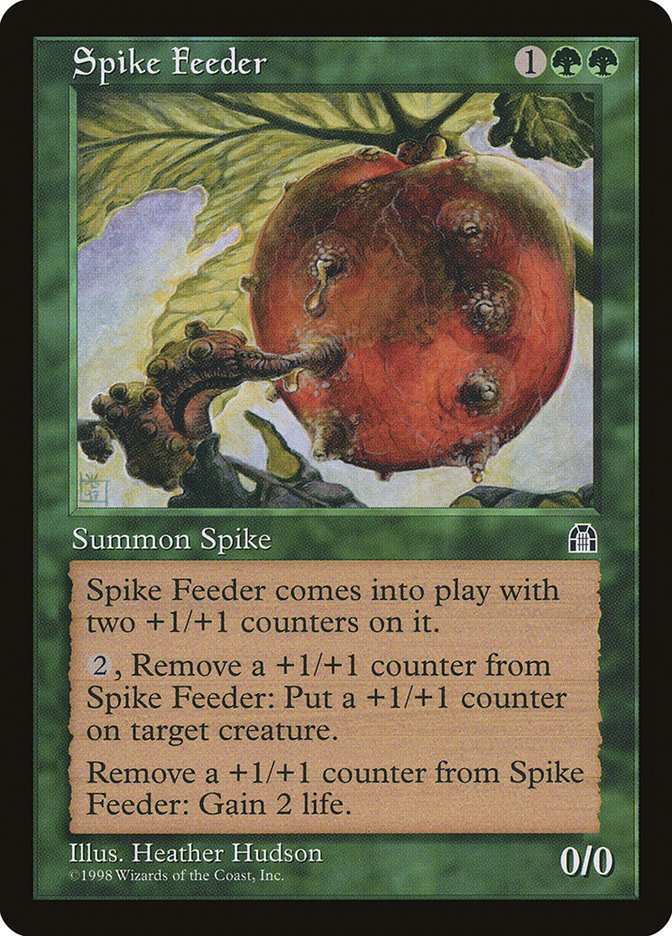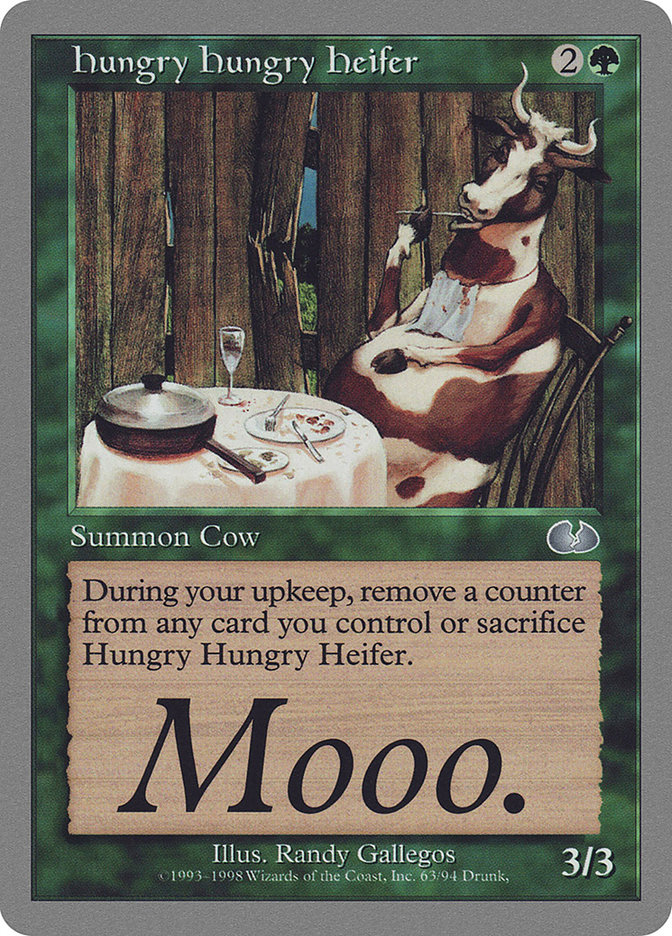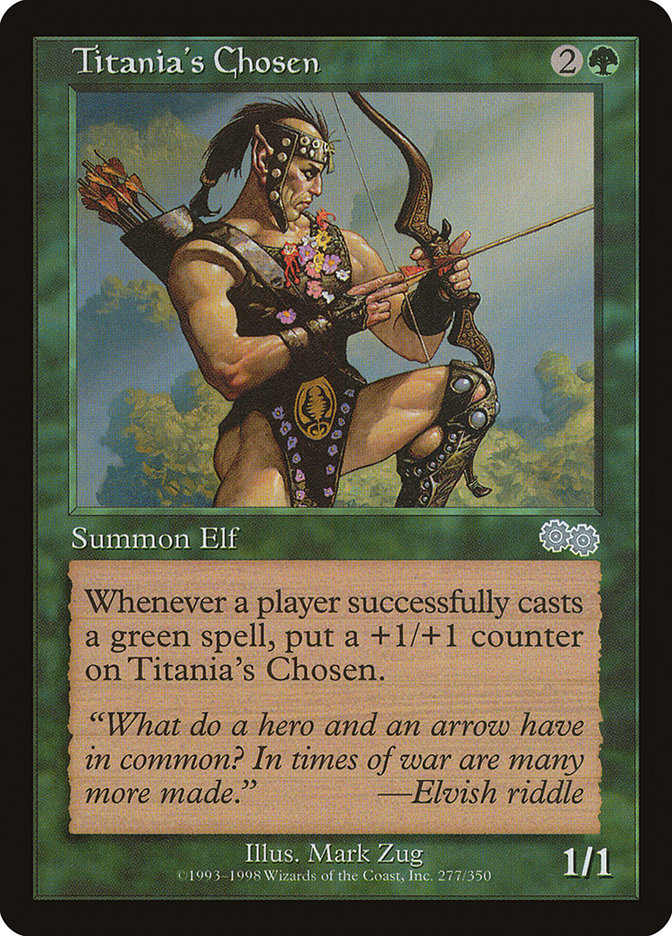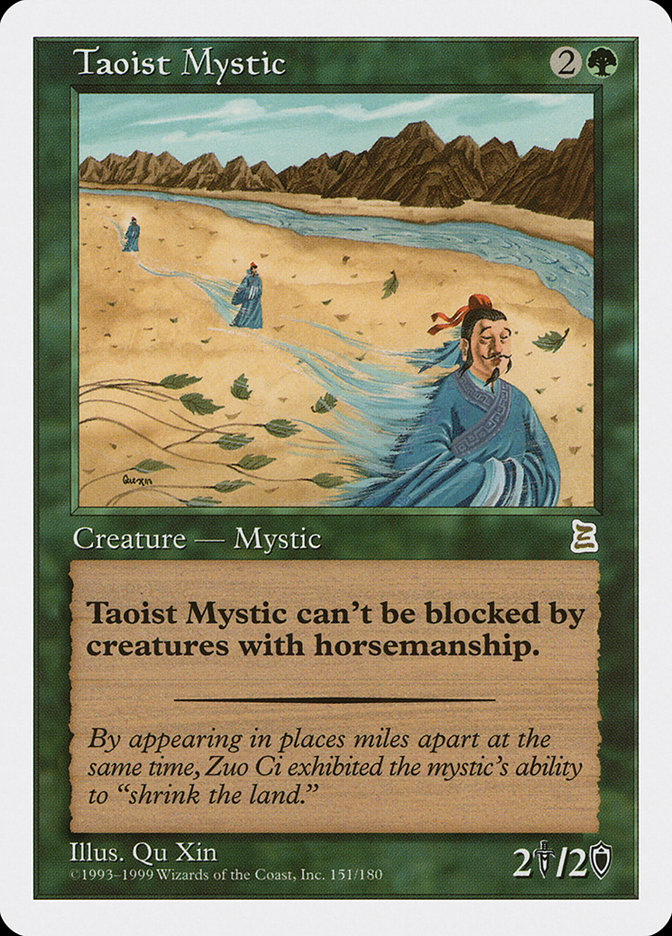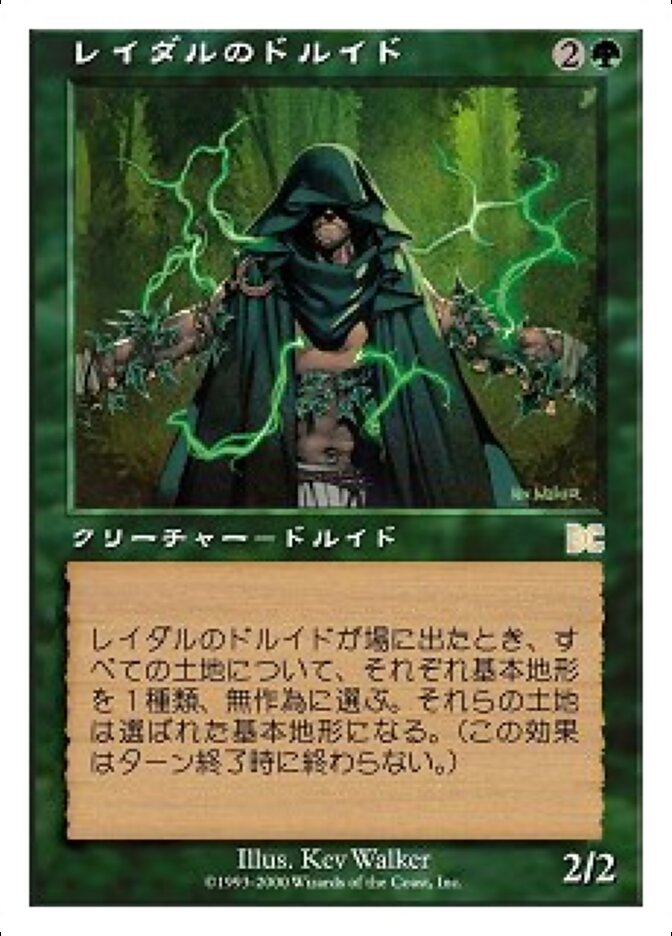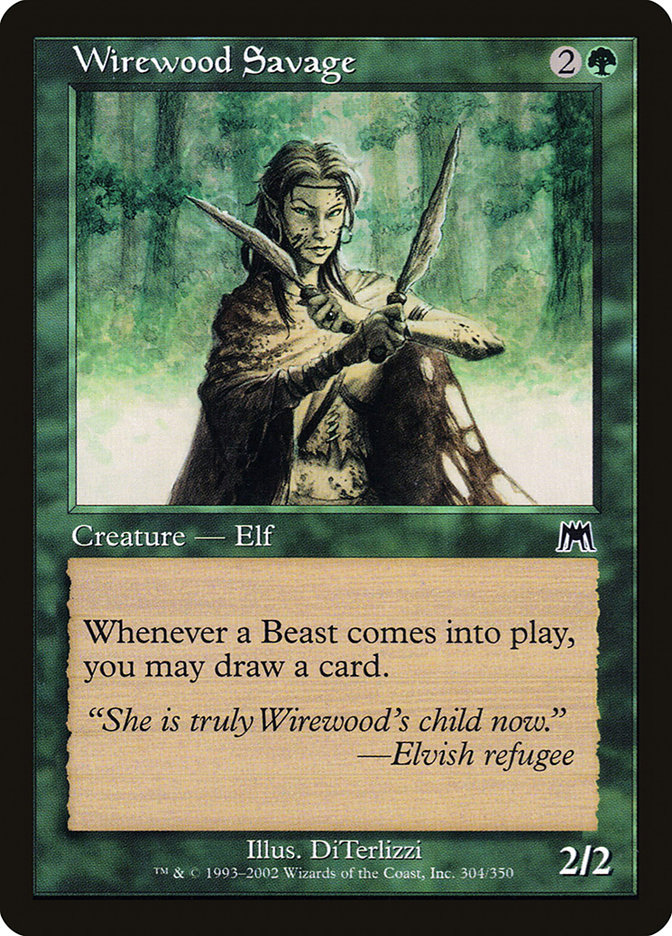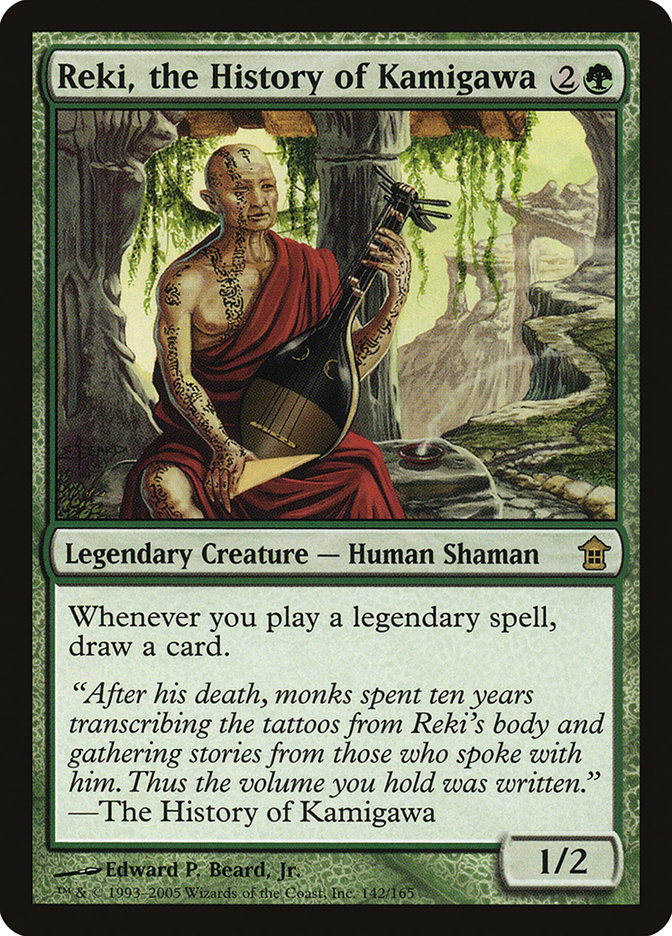Rift Sower MTG Card
| Mana cost | |
| Converted mana cost | 3 |
| Rarity | Common |
| Type | Creature — Elf Druid |
| Abilities | Suspend |
| Released | 2021-06-18 |
| Set symbol | |
| Set name | Modern Horizons 2 |
| Set code | MH2 |
| Power | 1 |
| Toughness | 3 |
| Number | 170 |
| Frame | 2015 |
| Layout | Normal |
| Border | Black |
| Illustred by | Cristi Balanescu |
Text of card
: Add one mana of any color. Suspend 2— (Rather than cast this card from your hand, you may pay and exile it with two time counters on it. At the beginning of your upkeep, remove a time counter. When the last is removed, cast it without paying its mana cost. It has haste.)
Cards like Rift Sower
Rift Sower is a unique card in the MTG universe, closely aligned with the stream of mana acceleration creatures. Standing out with its ability to fetch a basic land card when it enters the battlefield and thus ensuring a land drop, it bears a resemblance to cards like Wood Elves or Farhaven Elf. These creatures similarly facilitate mana ramp but have differing secondary abilities.
In comparison to Sakura-Tribe Elder, another stalwart ramp card, Rift Sower does not offer the flexibility of self-sacrifice for land tutoring. However, the Sower’s static ability to manipulate domain effects—increasing the number of land types one controls until the end of turn—makes it a strategic choice in decks that benefit from such synergies. Llanowar Scout and Walking Atlas also share the characteristic of land manipulation, yet they do not accelerate land count upon entry, marking a distinct advantage for Rift Sower in certain play scenarios.
Ultimately, Rift Sower finds its niche within the pantheon of MTG mana-fetch creatures. By straddling the line between immediate land ramp and domain synergy, it offers a versatile tool for deck builders aiming to optimize their mana base efficiently.
Cards similar to Rift Sower by color, type and mana cost
Decks using this card
MTG decks using Rift Sower. Dig deeper into the strategy of decks, sideboard cards, list ideas and export to play in ARENA or MOL.
| # | Name | Format | Archetype | Event |
|---|---|---|---|---|
 | Walls Combo | Pauper | Walls Combo | Pauper Challenge 64 2023-12-17 |
 | Wall Combo | Pauper | Walls Combo | Ogonyok |
 | Elves | Pauper | Elves | Pauper League 2024-01-31 |
Card Pros
Card Advantage: Rift Sower can be pivotal in decks that focus on landfall or graveyard strategies. By bringing lands from exile into the battlefield under your control, it can perpetuate card advantage, enabling you to outpace your opponent with additional resources.
Resource Acceleration: By immediately putting a land onto the battlefield, Rift Sower can accelerate your mana resources. This can be particularly powerful in ramp decks where large amounts of mana are required to cast high-cost spells earlier than usual.
Instant Speed: While Rift Sower itself may not have instant speed, it synergizes well with cards that allow you to play lands at instant speed. This can create unexpected plays by utilizing lands that provide instant speed effects or by surprise triggering landfall abilities on an opponent’s turn.
Card Cons
Discard Requirement: As a player, you need to be mindful of the Rift Sower’s ability, which involves discarding another card. This can be quite the drawback when you’re already running low on cards in hand, and it could potentially prevent you from keeping a pivotal card needed for later in the game.
Specific Mana Cost: Rift Sower’s mana cost, while generic, demands a committed investment, thereby pigeonholing the card into specific deck types that can accommodate or mitigate such costs. If your deck isn’t optimized to generate various types of mana efficiently, you might find Rift Sower a touch out of reach at crucial moments.
Comparatively High Mana Cost: Clocking in at a higher mana cost bracket, Rift Sower competes for a deck slot with other mid- to high-cost cards promising instantaneous impact or greater flexibility. Savvy players may balk at the inclusion of Rift Sower when alternatives exist that yield more bang for the same mana buck, or less.
Reasons to Include Rift Sower in Your Collection
Versatility: Rift Sower is a flexible card, seamlessly integrating into decks that want ramp options, especially for those pursuing a landfall strategy. Its ability to search for a basic land card ensures a smooth mana curve, enhancing consistency in various game plans.
Combo Potential: This card presents an opportunity to engage in combos with landfall mechanics or cards that benefit from sacrificial triggers due to its ability to sacrifice itself for land fetching. Rift Sower plays well with recursion strategies and can be a cornerstone in synergistic plays.
Meta-Relevance: In an environment where mana acceleration is vital, Rift Sower provides an advantage by helping you stay ahead on resources. Its relevance grows with strategies that benefit from quick setups or the need to match an opponent’s growing board presence.
How to beat
Rift Sower is an intriguing element in the MTG universe, distinguishing itself within the ramp category. It allows players to fetch a basic land as it enters the battlefield, which ideally accelerates mana availability. The card’s uniqueness lies in its potential to fix your mana by searching for any basic land type, thereby strengthening your deck’s consistency and facilitating the casting of spells with demanding color requirements earlier than usual.
Victory against Rift Sower often entails disrupting the ramp advantage it offers. Keeping removal spells handy to eliminate Rift Sower upon entry can be a game-changer. Assessing cards like Path to Exile or Rapid Hybridization which can deal with Rift Sower immediately as it hits the field, ensures its mana acceleration ability is halted. Additionally, leveraging land destruction or denial strategies with cards such as Ghost Quarter or Leonin Arbiter can further dampen the ramp strategy that Rift Sower would otherwise enable. Preventing it from untapping through cards like Frost Lynx or keeping mana available for counterplay are tactics well worth considering.
Ultimately, while Rift Sower can set the stage for a robust mana base, timely interaction and strategic foresight can effectively counteract the advantage this card offers MTG players within their deck dynamics.
BurnMana Recommendations
Bridging the gap between theory and practice in MTG is what Rift Sower excels at, setting a dynamic foundation for empowering ramp and domain strategies. With its unique ability to fetch lands and enable quicker setups, the card secures a rightful spot in specific deck archetypes. Appreciate the strengths, mitigate the weaknesses, and innovate with Rift Sower’s potential to revolutionize your gameplay. Dive deeper into the complex yet rewarding world of MTG and let Rift Sower open new dimensions in your deck-building journey. Join our community for further insights and tips to harness the full power of your MTG collection.
Where to buy
If you're looking to purchase Rift Sower MTG card by a specific set like Modern Horizons 2, there are several reliable options to consider. One of the primary sources is your local game store, where you can often find booster packs, individual cards, and preconstructed decks from current and some past sets. They often offer the added benefit of a community where you can trade with other players.
For a broader inventory, particularly of older sets, online marketplaces like TCGPlayer, Card Kingdom and Card Market offer extensive selections and allow you to search for cards from specific sets. Larger e-commerce platforms like eBay and Amazon also have listings from various sellers, which can be a good place to look for sealed product and rare finds.
Additionally, Magic’s official site often has a store locator and retailer lists for finding Wizards of the Coast licensed products. Remember to check for authenticity and the condition of the cards when purchasing, especially from individual sellers on larger marketplaces.
Below is a list of some store websites where you can buy the Rift Sower and other MTG cards:
 BUY NOW
BUY NOW BurnMana is an official partner of TCGPlayer
- eBay
- Card Kingdom
- Card Market
- Star City Games
- CoolStuffInc
- MTG Mint Card
- Hareruya
- Troll and Toad
- ABU Games
- Card Hoarder Magic Online
- MTGO Traders Magic Online
See MTG Products
Legalities
Magic the Gathering formats where Rift Sower has restrictions
| Format | Legality |
|---|---|
| Commander | Legal |
| Legacy | Legal |
| Paupercommander | Legal |
| Modern | Legal |
| Oathbreaker | Legal |
| Pauper | Legal |
| Vintage | Legal |
| Duel | Legal |
Rules and information
The reference guide for Magic: The Gathering Rift Sower card rulings provides official rulings, any errata issued, as well as a record of all the functional modifications that have occurred.
| Date | Text |
|---|---|
| 2021-06-18 | A creature cast using suspend will enter the battlefield with haste. It will have haste until another player gains control of it. (In some rare cases, another player may gain control of the creature spell itself. If this happens, the creature won't enter the battlefield with haste.) |
| 2021-06-18 | As the second triggered ability resolves, you must cast the card if able. You must do so even if it requires targets and the only legal targets are ones that you really don't want to target. Timing permissions based on the card's type are ignored. |
| 2021-06-18 | Cards exiled with suspend are exiled face up. |
| 2021-06-18 | Exiling a card with suspend isn't casting that card. This action doesn't use the stack and can't be responded to. |
| 2021-06-18 | If an effect refers to a “suspended card,” that means a card that (1) has suspend, (2) is in exile, and (3) has one or more time counters on it. |
| 2021-06-18 | If the card has in its mana cost, you must choose 0 as the value of X when casting it without paying its mana cost. |
| 2021-06-18 | If the first triggered ability of suspend (the one that removes time counters) is countered, no time counter is removed. The ability will trigger again at the beginning of the card's owner's next upkeep. |
| 2021-06-18 | If the second triggered ability is countered, the card can't be cast. It remains exiled with no time counters on it, and it's no longer suspended. |
| 2021-06-18 | If the spell requires any targets, those targets are chosen when the spell is finally cast, not when it's exiled. |
| 2021-06-18 | If you can't cast the card, perhaps because there are no legal targets available, it remains exiled with no time counters on it, and it's no longer suspended. |
| 2021-06-18 | If you cast a card “without paying its mana cost,” such as with suspend, you can't choose to cast it for any alternative costs. You can, however, pay additional costs. If the card has any mandatory additional costs, you must pay those if you want to cast the card. |
| 2021-06-18 | Suspend is a keyword that represents three abilities. The first is a static ability that allows you to exile the card from your hand with the specified number of time counters (the number before the dash) on it by paying its suspend cost (listed after the dash). The second is a triggered ability that removes a time counter from the suspended card at the beginning of each of your upkeeps. The third is a triggered ability that causes you to cast the card when the last time counter is removed. If you cast a creature spell this way, it gains haste until you lose control of that creature (or, in rare cases, you lose control of the creature spell while it's on the stack). |
| 2021-06-18 | The mana value of a spell cast without paying its mana cost is determined by its mana cost, even though that cost wasn't paid. |
| 2021-06-18 | When the last time counter is removed, the second triggered ability of suspend (the one that lets you cast the card) triggers. It doesn't matter why the last time counter was removed or what effect removed it. |
| 2021-06-18 | You are never forced to activate mana abilities to pay costs, so if there is a mandatory additional mana cost (such as from Thalia, Guardian of Thraben), you can decline to activate mana abilities to pay for it and hence fail to cast the suspended card, leaving it in exile. |
| 2021-06-18 | You can exile a card in your hand using suspend any time you could cast that card. Consider its card type, any effects that modify when you could cast it (such as flash) and any other effects that stop you from casting it (such as from Meddling Mage's ability) to determine if and when you can do this. Whether you could actually complete all steps in casting the card is irrelevant. For example, you can exile a card with suspend that has no mana cost or that requires a target even if no legal targets are available at that time. |
